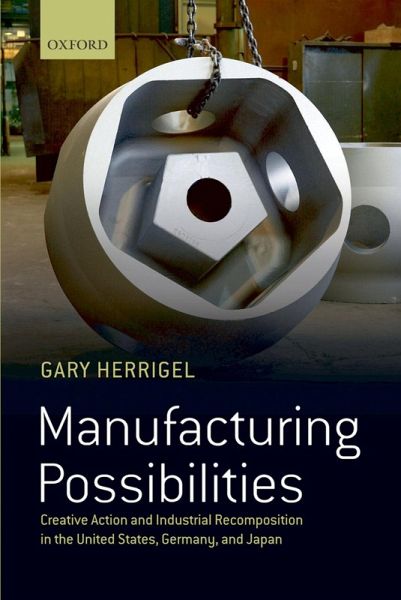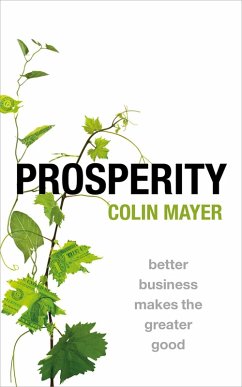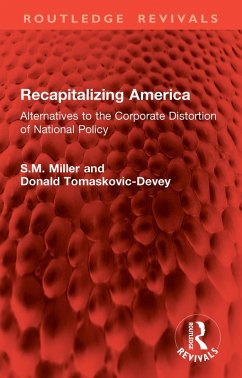
Manufacturing Possibilities (eBook, ePUB)
Creative Action and Industrial Recomposition in the United States, Germany, and Japan
Versandkostenfrei!
Sofort per Download lieferbar
31,95 €
inkl. MwSt.
Weitere Ausgaben:

PAYBACK Punkte
16 °P sammeln!
Manufacturing Possibilities examines adjustment dynamics in the steel, automobile and machinery industries in Germany, the U.S., and Japan since World War II. As national industrial actors in each sector try to compete in global markets, the book argues that they recompose firm and industry boundaries, stakeholder identities and interests, and governance mechanisms at all levels of their political economies. Micro level study of industrial transformation in this way provides a significant window on macro level processes of political economic change in the three societies. Theoretically, the bo...
Manufacturing Possibilities examines adjustment dynamics in the steel, automobile and machinery industries in Germany, the U.S., and Japan since World War II. As national industrial actors in each sector try to compete in global markets, the book argues that they recompose firm and industry boundaries, stakeholder identities and interests, and governance mechanisms at all levels of their political economies. Micro level study of industrial transformation in this way provides a significant window on macro level processes of political economic change in the three societies. Theoretically, the book marks a departure from both neoliberal economic and historical institutionalist perspectives on change in advanced political economies. It characterizes industrial change as a creative, bottom-up process driven by reflective social actors. This alternative view consists of two distinctive claims. The first is that action is social, reflective, and ultimately creative. When their interactive habits are disrupted, industrial actors seek to repair their relations by reconceiving them. Such imaginative interaction redefines interest and causes unforeseen possibilities for action to emerge, enabling actors to trump existing rules and constraints. Second, industrial change driven by creative action is recompositional. In the social process of reflection, actors rearrange, modify, reconceive, and reposition inherited organizational forms and governance mechanisms as they experiment with solutions to the challenges that they face. Continuity in relations is interwoven with continuous reform and change. Most remarkably, creativity in the recomposition process makes the introduction of entirely new practices and relations possible. Ultimately, the message of Manufacturing Possibilities is that social study of change in advanced political economies should devote itself to the discovery of possibility. Preoccupation with constraint and failure to appreciate the capaciousness of reflective social action has led much of contemporary debate to misrecognize the dynamics of change. As a result, discussion of the range of adjustment possibilities in advanced political economies has been unnecessarily limited.
Dieser Download kann aus rechtlichen Gründen nur mit Rechnungsadresse in A, B, BG, CY, CZ, D, DK, EW, E, FIN, F, GR, HR, H, IRL, I, LT, L, LR, M, NL, PL, P, R, S, SLO, SK ausgeliefert werden.













